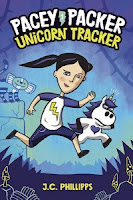I can recall reading novels, probably historical romances, about the Napoleonic Wars when I was a teenager. So you can see why I was attracted to a review of
Ironhead: Or Once a Young Lady by Belgian writer
Jean-Claude van Rijckeghem, with translation by
Kristen Gehrman, which might be described as a historical anti-romance.
Eighteen-year-old Constance is a young woman who doesn't know her place in early nineteenth-century Belgian society, probably because there isn't one for her, since she has minimal interest in doing laundry and bearing children. Her father insists she marry a much older man who will then become his business partner and pay off his debts. Constance sticks out the marriage for four months. Then, recalling having run into what was clearly a lesbian couple in which one member was dressed as a man, she comes up with a plan to take the place of a local acquaintance who has been drafted into Napoleon's army. Living as a man among soldiers--that is most definitely Stance's place.
Constance's fourteen-year-old brother, Pier, does know his place in their society. He's a student in a boarding school, which will open possibilities for him. But his father can no longer pay his school fees. Money from Constance's husband was supposed to take care of that. So when Constance disappears, he takes off with a supposedly trustworthy guide to find her and bring her back.
The two siblings appear as point-of-view characters in different parts of the book. We're not talking alternating chapters here, but close to it. Because Pier is a more conventional character, his story thread isn't as interesting in the early part of the book, though he improves markedly. They both have journey/adventure story lines.
I think this is a unique book in today's American YA scene, where you find a lot of fantasy and contemporary romance with some contemporary mystery and thrillers thrown in. Historical fiction tends to be of a more accessible time, say late nineteenth, early twentieth century. Ironhead is a good book that requires a little of the reader to start, with a big payoff later, something I can't recall seeing much of in YA.








